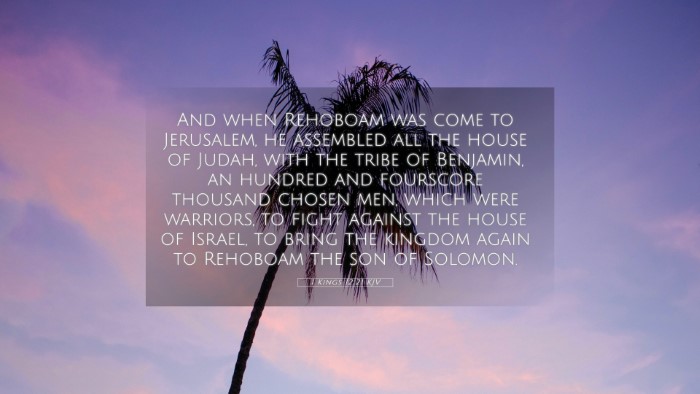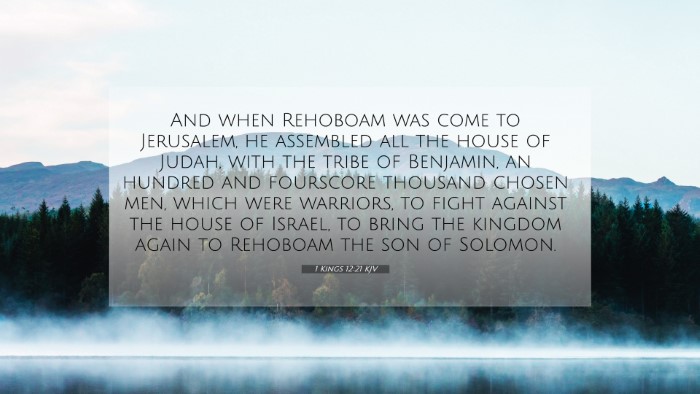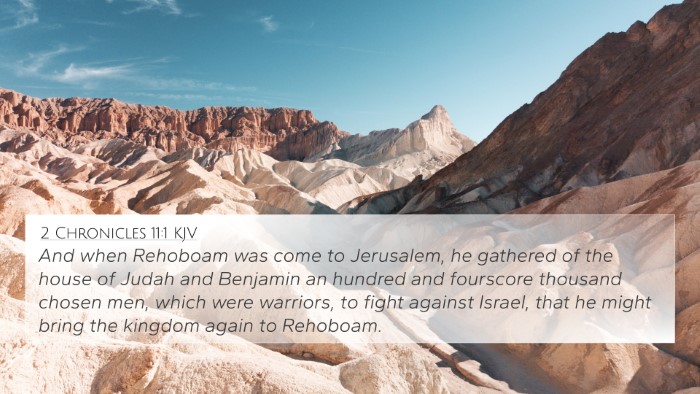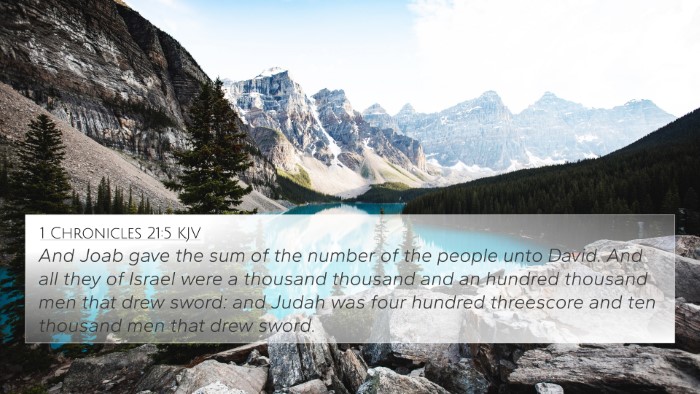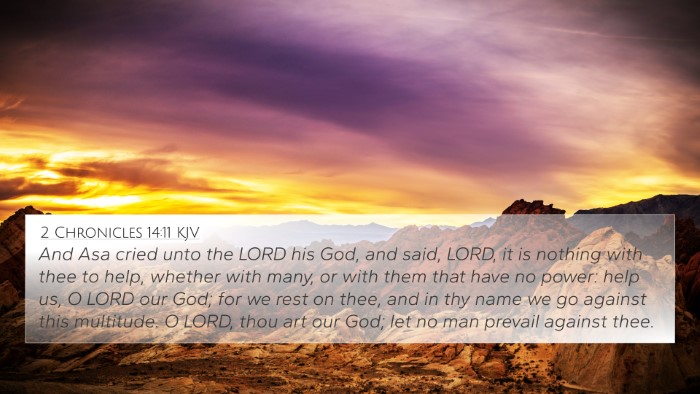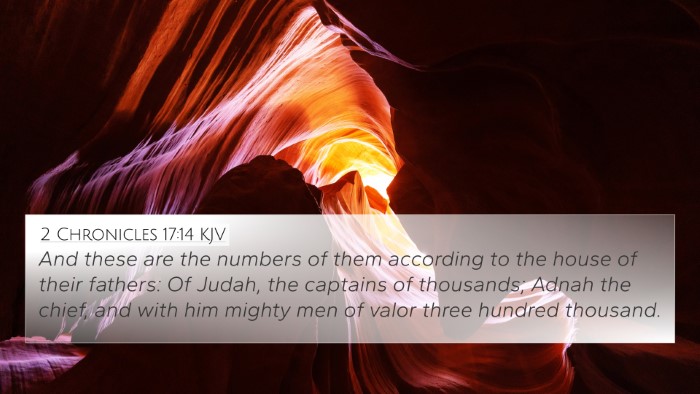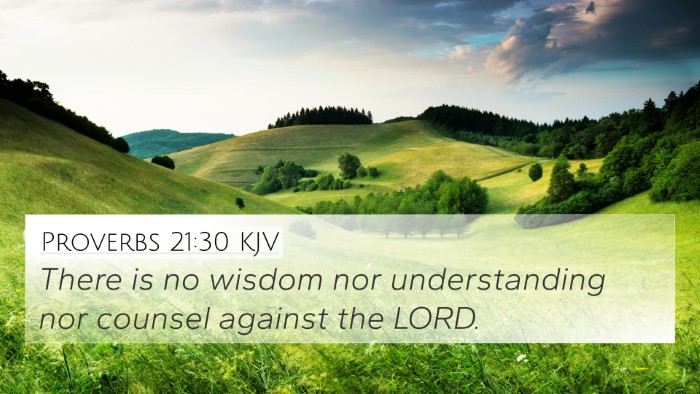Understanding 1 Kings 12:21
Verse Reference: 1 Kings 12:21 - "And when Rehoboam was come to Jerusalem, he assembled all the house of Judah, with the tribe of Benjamin, and an hundred and fourscore thousand chosen men, which were warriors, to fight against the house of Israel, to bring the kingdom again to Rehoboam."
Summary of the Verse's Meaning
This verse captures a pivotal moment in the history of Israel, focusing on Rehoboam's response to the division of the kingdom that followed Solomon's reign. The text reveals Rehoboam's intent to restore unity by gathering a significant military force.
Insights from Public Domain Commentaries
Combining insights from prominent biblical commentators, the following interpretations can clarify the significance of this verse:
Matthew Henry's Commentary
Matthew Henry notes that Rehoboam’s decision to assemble an army reflects his ambition to reclaim control over the northern tribes, which had just seceded under Jeroboam's leadership. This act signifies a readiness to use force for political gain, raising questions about the reliance on military might versus divine guidance.
Albert Barnes' Notes
Barnes emphasizes the moral implications of Rehoboam's actions. He remarks that the king's choice to prepare for war indicates a lack of faith in God's sovereignty and wisdom. Instead of seeking God’s will as his father had done, Rehoboam opted for a worldly approach to governance, exemplifying a reliance on human strength.
Adam Clarke's Commentary
Clarke provides historical context, explaining the political climate of the time. He points out that Rehoboam’s military response could not only be seen as a threat to the newly formed kingdom of Israel but also suggests a nascent civil war. Clarke underscores the irony that despite Rehoboam's gathered strength, true leadership should focus on unity rather than division.
Cross-References and Connections to Other Bible Verses
This verse can be linked to several other passages, highlighting the broader biblical narrative of kingship, division, and the consequences of decisions made apart from God's guidance:
- 1 Kings 11:39: God's promise to afflict the house of David, showing the divine orchestration behind the kingdom’s division.
- 2 Chronicles 10:1: A parallel account of Rehoboam's encounter with Jeroboam that provides additional context to this event.
- 1 Kings 12:16: The people's reaction after hearing Rehoboam's harsh words, leading to the eventual split.
- Proverbs 11:14: A reminder of the necessity for counsel, highlighting Rehoboam’s failure to seek wise counsel before acting.
- Jeremiah 3:10: A future prophetic reflection on Israel’s waywardness against God, relating to the split.
- 1 Samuel 8:7-9: God's warning to Israel about the consequences of wanting a king, underlining their recurrent disobedience.
- Luke 11:17: Jesus' teaching on division within a kingdom, echoing the internal conflict seen in Rehoboam's story.
- Galatians 6:7: The principle of reaping what one sows, applicable to Rehoboam's reliance on brute force leading to disunity.
- James 1:5: An exhortation to seek wisdom from God, contrasting with Rehoboam’s choices.
- Matthew 12:25: A teaching of Jesus about a divided house, reflecting the consequences of Rehoboam's decisions.
Conclusion
1 Kings 12:21 serves as a complex narrative on leadership and the pitfalls of neglecting divine direction in favor of human strategy. Through the insights gathered from various commentators and the connections to other scriptural texts, believers are encouraged to seek wisdom and unity under God’s guidance rather than resorting to conflict and division.
Further Reflection
As you explore the connections between these verses and the themes they present, consider how the message of Rehoboam’s choices resonates within the broader context of scripture. Reflecting on this can provide deeper understanding of leadership, the importance of seeking counsel, and the divine plan at work throughout biblical history.
Tools for Bible Cross-Referencing
Engaging with Bible cross-references can deepen your scriptural study:
- Utilize a Bible concordance for thematic searches.
- Refer to a cross-reference Bible study guide for structured engagement.
- Employ cross-referencing methods to identify crucial connections.
- Consult Bible reference resources to enhance your understanding.

